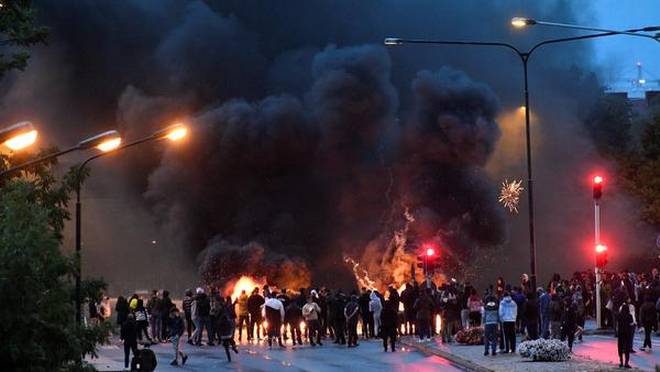Immigrants from Africa also bring clan-based organization with them to Europe, which poses many challenges for the receiving countries. Their structure and operation are foreign to European societies and their police, which makes effective action against them significantly more difficult. Mandiner reported on the conference organized by the Migration Research Institute on the subject.
On Tuesday, the Migration Research Institute held an online conference entitled Challenges of clan-based communities in Europe. As it was said at the conference: immigrants from the Middle East and sub-Saharan Africa in recent decades brought their social structures, largely unknown in contemporary Europe, to the continent.
The speakers covered the issue of how this affects the host communities, how it hinders integration, and how it promotes the development of parallel societies. Perhaps the most worrisome phenomenon linked to clans, clan-based crime, was also discussed, which mainly absorbs immigrants who have missed out on social integration and, consequently, the "European dream".
The internal structure and operational dynamics of clan-based immigrant communities are foreign to European societies and violent organizations, which significantly complicates effective action against them.
Modern, state-based societies are individualistic, the individual is highlighted only by his own merits, and only he can be held responsible for his possible sins. In contrast, clan-based societies place the given community before everything else. The honor of one member of the clan is a function of the honor of the entire collective, and the transgression committed by an individual is the sin of the entire clan , said Johan Lundberg , professor of Stockholm University, in his presentation.
Although there are 40 clan-based criminal organizations in Sweden , since the beginning of the 2000s, the dominant postmodern discourse in scientific and political public discourse has significantly prevented the development of a broad social debate on the problem. According to Lundberg, anyone who wants to deal with clan-based crime can automatically be classified as a racist.
Emese Kovács , a researcher at the Migration Research Institute, examined what measures the Danish state intends to use to eradicate parallel societies and the clan-based crime associated with them. According to a 2020 survey in Denmark 74,000 immigrants may live in parallel societies . According to the research conducted among immigrants from a non-Western background, 16% of the respondents cannot freely choose their life partner, and 5% cannot freely decide about their own education or friends.
In Denmark, there is a complete political consensus that the state must act with a strong hand against clan-based crime and eradicate the ghettos that are hotbeds of the problem. The planned measures include the ban on religious marriages between minors and organized "re-education trips" to the issuing mother countries. The government also plans to significantly tighten immigration, as well as the physical liquidation of ghettoized neighborhoods by relocating the population.
Viktor Marsai , research director of the Migration Research Institute and lecturer at the National Public Service University, presented the role of clans in Somali politics. In Somalia , clans form a complex, constantly changing, multi-layered, hierarchical structure that encompasses the entire society . Marsai also pointed out that the European Somali diasporas often bring with them tensions between clans , and that clan-based criminal groups have a counter-interest in the integration process, since the integrating Somalis will no longer be loyal to their clan, but to the state - and the authorities.
Regarding the management and solution of the problem, the presenters pointed out that the individual integration process can work best , because the successful integration of the clan as a structure into European societies is difficult to imagine.
The full article HERE .
Cover image illustration: Photo: Reuters












